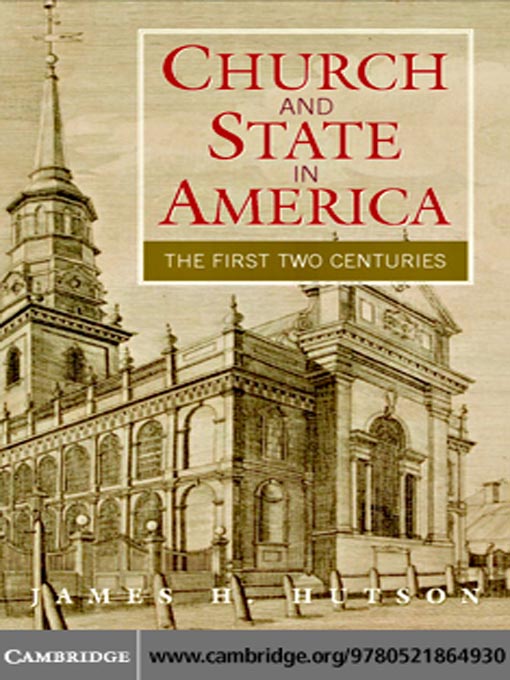This is an account of the ideas about and public policies relating to the relationship between government and religion from the settlement of Virginia in 1607 to the presidency of Andrew Jackson, 1829-1837. This book describes the impact and the relationship of various events, legislative, and judicial actions, including the English Toleration Act of 1689, the First and Second Great Awakenings, the Constitution of the United States, the Bill of Rights, and Jefferson's Letter to the Danbury Baptists. Four principles were paramount in the American approach to government's relation to religion: the importance of religion to public welfare; the resulting desirability of government support of religion (within the limitations of political culture); liberty of conscience and voluntaryism; the requirement that religion be supported by free will offerings, not taxation. Hutson analyzes and describes the development and interplay of these principles, and considers the relevance of the concept of the separation of church and state during this period.
- Available Now - Ebooks
- Unputdownable ebooks!
- New eBook additions
- Rapid Reads! (Always available)
- Read Before You Watch
- Addiction Affects Everyone
- NSFW! - ebooks
- Harry Potter around the world
- 中文标题
- Livres en Français
- Graphic novels & comics - for adults
- Most popular
- Read a Banned Book
- See all
- New audiobook additions
- Unputdownables!
- Read a Banned Book
- Hola, Bonjour, Hallo, Ciao, Namaste, Marhaba! Learn a language
- Author interviews (Professional Book Nerds) - Always Available - Audio podcasts
- Nonfiction Audiobooks - Always Available
- Fiction Audiobooks - Always Available
- En Français, comprenez-vous?
- по-русски, понимаете ли вы?
- NSFW!
- Harry Potter around the world
- Most popular
- Available now
- See all

